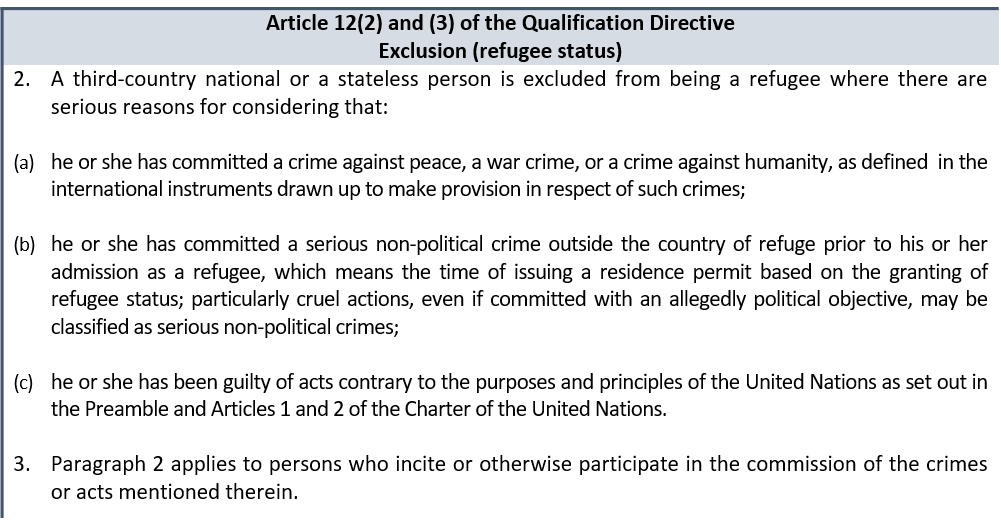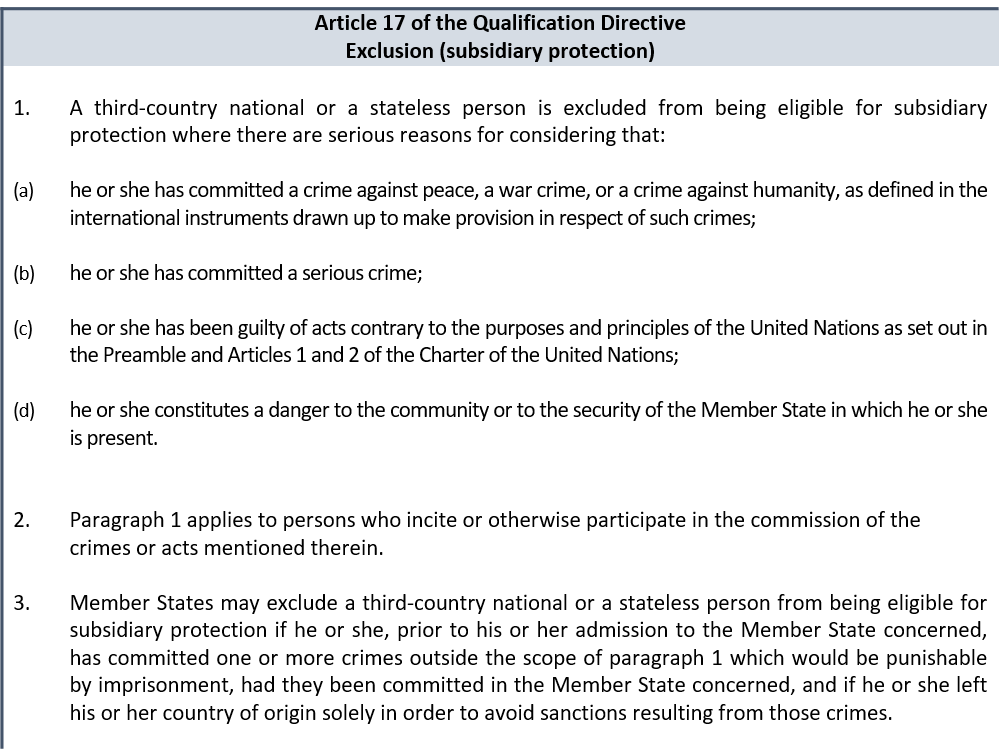Applying the exclusion grounds, where there are serious reasons to consider that the applicant has committed any of the relevant acts, is mandatory.
This chapter focuses on the exclusion of applicants found not to deserve international protection in accordance with Article 12(2) QD and Article 17(1) QD.
If a person would otherwise qualify for refugee status, the following would constitute exclusion grounds, according to Article 12(2) and (3) QD:

If the person would otherwise be eligible for subsidiary protection, the exclusion grounds under Article 12(2)(a) and (c) QD would apply in the same way (Article 17(1)(a) and (c) QD, respectively). The ground of ‘serious crime’ (Article 17(1)(b) QD), on the other hand, is broader than ‘serious non-political crime’ and has no geographical or temporal limitations. Furthermore, additional exclusion grounds are envisaged under Article 17(1)(d) QD and Article 17(3) QD. Article 17(3) QD contains an optional provision and its applicability would depend on the transposition of this provision in national legislation. [50]

It should be taken into account that an applicant could have committed multiple excludable acts, falling under different exclusion provisions. National practice may vary regarding whether one particular act should be qualified under more than one ground where the necessary elements are present.
It should be underlined that the determining authority has the burden of proof to establish:

Figure 16. Elements in applying exclusion.
At the same time, the applicant has a duty to cooperate in establishing all facts and circumstances relevant to his or her application.
Individual responsibility could be substantiated not only in case of direct commission of the excludable act (for the perpetrator), but also in other instances where the person substantially contributed to the commission of an excludable act. The assessment of individual responsibility is based on the nature and extent of the applicant’s involvement in the excludable act(s), as well as his or her state of mind in relation to these act(s). Different forms of conduct may lead to a finding of individual responsibility (for example, direct commission, inducing others, aiding and abetting, command responsibility, etc.), where the relevant intent and knowledge are established.At the same time, the applicant has a duty to cooperate in establishing all facts and circumstances relevant to his or her application.
Furthermore, the examination should take into account potential grounds negating the individual responsibility, such as lack of mental capacity to comprehend and/or control one’s conduct (e.g. due to age, mental disease or defect, involuntary intoxication), duress (e.g. in the context of forced recruitment), self-defence or defence of others (or property, in the case of war crimes), superior orders in specific circumstances (see Article 33 of the Rome Statute),[51] etc.
Depending on national practice, the analysis may further proceed to take into account whether or not the possible exclusion of the applicant would meet the purposes of the exclusion clauses. Elements, such as the fact that an applicant has already served a sentence for the (otherwise) excludable act, or that the act is subject to an amnesty, could potentially be taken into account. The more egregious the excludable acts, the less relevant such aspects would be when taking the decision.
For further horizontal guidance on individual responsibility, see ‘EASO Practical Guide: Exclusion’, p.29.[52]
